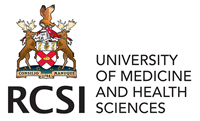Prof K Bennett, Dr C Cahir
Applications accepted all year round
About the Project
Almost 3,000 women are diagnosed with breast cancer annually in Ireland. In women with hormone-responsive early breast cancer, 5-10 years of endocrine therapy is recommended to prevent breast cancer recurrence and mortality, with a reduction in cancer recurrence of up to 50%. However, despite the proven clinical efficacy of endocrine therapy, many women (30-70%) do not take their treatment as recommended. To date only a minority of published medication taking behaviour (MTB) interventions have improved MTB or enhanced patient outcomes.
Aims:
To develop, pilot and evaluate a theoretical-based behavioural intervention to improve endocrine therapy MTB and health outcomes in women with stage I-III breast cancer.
Methods:
The Medical Research Council’s framework for the development of complex interventions will be used with the Theoretical Domains Framework (TDF) and taxonomy of Behaviour Change Techniques (BCTs) as the theoretical framework. Three inter-related work-packages are proposed. Work-package 1, building on previous research, will identify and model the demographic, clinical, treatment-related, psychological and health behavioural determinants of endocrine therapy MTB and associated health outcomes (quality of life, side-effects) in women with stage I-III breast cancer using data from the National Cancer Registry Ireland (NCRI) linked to national breast cancer patient questionnaire data (N=1,606, response rate=66%). Work-package 2 will identify the content and implementation options for the intervention by establishing a definitive list of MTB BCTs and their form of delivery to be tested, through Steering Group consensus. The BCTs will be pre-tested in a feasibility study and piloted in a randomized control trial of women with stage I-III breast cancer who have been prescribed endocrine therapy and clinical and support staff, to assess face validity, acceptability, feasibility and any barriers to implementation. Workpackage 3 will evaluate the cost-effectiveness of potential interventions to improve endocrine therapy MTB.
Conclusion:
The results of this research will directly benefit women with breast cancer prescribed endocrine therapy, through improved clinical outcomes and survival and also the healthcare professions involved in their care.

 Continue with Facebook
Continue with Facebook

